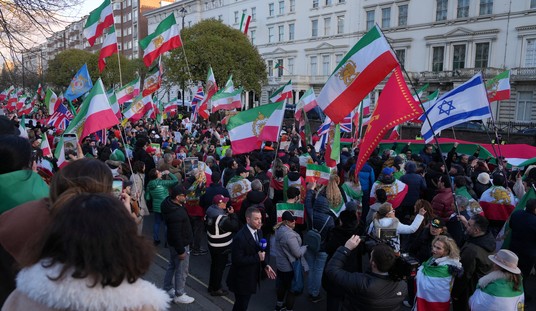Police officials in the beautiful and historic South Carolina city of Charleston have identified a major new public safety menace requiring their immediate attention. This latest threat -- being met by the authorities with an aggressive public awareness campaign and “sting” operations coupled with hefty fines in excess of $1,000 -- is not drugs, gangs, or illegal immigration. The threat posed the good citizens of Charleston is: Uber!
Uber is a fast-growing, popular digital app for smart phones that provides consumers in Charleston and many cities across the country and around the world with an alternative to traditional taxi services. It is just one of many new digitally-based innovations having a major impact in the marketplace -- entrepreneurial-based businesses creating new options for consumers in everything from online commerce (Bitcoin), to how you get around (Lyft), to where to stay on vacation (Airbnb). Even food trucks, a mobile spin on the concept of street food, have exploded with the formation of digital communities and communications.
So why is Uber seen as a public-safety threat rather than a benefit to consumers and businesses? Simple. Uber challenges the establishment; it is a threat to the status quo; it must be . . . regulated and controlled. And what better way to do this than through police power; in this particular case, the police power of the City of Charleston.
Welcome to the brave, new world that the Land once of the Free has become. Products and services like Uber are revolutionizing markets and marketing; shifting power long-dominated by large and powerful corporations and cartels, to individual entrepreneurs and start-up businesses. They are challenging the most powerful force in the universe – the force of the status quo.
Consumers are embracing these new technologies with open arms and open wallets; ready and willing to pay for new products and services that offer what they want, when they need it. But, in the same way that automobile manufacturers and dealers are fighting to keep upstart Tesla from competing against them on a level marketing playing field, government-empowered regulators whose mission is to protect the taxi industry from competition, are fighting Uber, and enlisting the support of the police to aid them.
Recommended
The public rationale for this abuse of government police power is – of course – “public safety;” despite there being no evidence whatsoever that, for example, Uber poses any threat in that arena. It is not only Uber finding itself in the crosshairs of government agents and agencies. Regulators and law enforcement are targeting Lyft, mobile food trucks, and many other new products and services -- also without any evidence that the public generally, or consumers specifically who wish to take advantage of such products and services, are threatened in their safety by doing so.
The lack of any credible threat to public safety – aside from inevitable and almost-always isolated incidents common to any business in any industry – illustrates clearly for anyone truly interested in free enterprise, what is going on here. For example, in the case of Uber in Charleston, police jumped to action only after meeting with local taxi companies. Similarly, Boston City Councilor Sal LaMattina recently raised concern about Airbnb, where homeowners can rent their property on a short-term basis, after being “educated” by the local hotel industry as to the potential impact by this upstart business on that industry!
This unholy relationship between government regulators and the cartels of long-regulated industries is what business analyst Larry Downes refers to as “regulatory capture.” It occurs when regulators and industries are often the only two players interacting each other, which over time leads to a dangerous “customer-provider relationship” where each groups has “a vested interest in continuing the regulatory system long after the public interest benefits have been vastly outweighed by the anti-innovation costs.”
“The regulator becomes the industry’s cheerleader, and regulations shift subtly from protecting the public interest to protecting the status quo,” says Downes.
This increasingly prevalent display of government/industry cronyism seriously threatens innovation by creating regulatory barriers that prevent new technology from entering the market, even as they drive up costs, diminish quality and increase inefficiencies.
Uber, Airbnb, Bitcoin and other such services may not be perfect; and some almost certainly will be overtaken and ultimately replaced by competitors offering more efficient and responsive products. But this is precisely as it should be. Market competition, not government-directed and law enforcement-protected regulation to skew the marketplace, is the time-proven process by which consumers enjoy lower prices and better products.
Any passenger stepping into a foul-smelling cab which he is forced to board by a government-licensed dispatcher at Reagan National Airport, for example, with a driver barely conversant in the English language, readily can attest to what a lack of competition can lead to in an industry. That same consumer just as readily can articulate why he is willing to pay a slight premium for a late-model, clean Uber vehicle, driven by an articulate, well-dressed driver who shows up within minutes of the customer activating his app and who knows exactly the best route to traverse.
Uber is not the threat; the status quo is.

























Join the conversation as a VIP Member